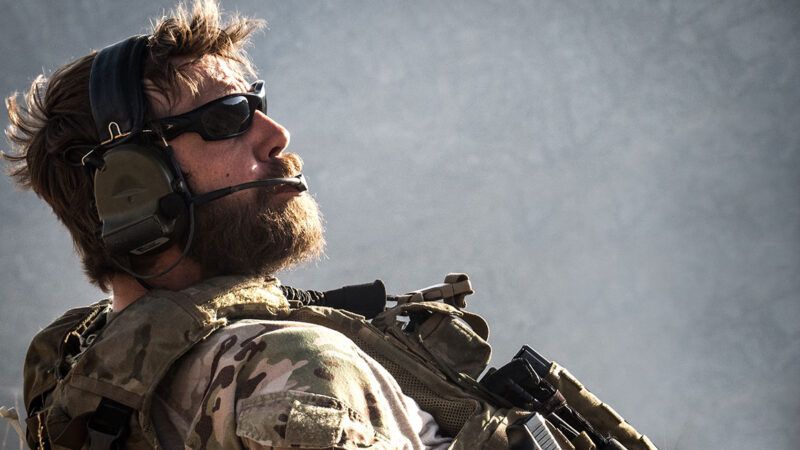Travis Peterson on America's Afghan Allies
America has wrongly abandoned thousands of Afghan allies who had been promised Special Immigrant Visas. Now, private citizens, veterans, and government personnel are trying to get them out.

Travis Peterson, an Air Force veteran who spent 21 years on active duty and four years as a military contractor, knew that America's withdrawal from Afghanistan would leave behind thousands of Afghans who had helped both U.S. and NATO coalition forces. These Afghan contractors and soldiers, he says, "fought to the death for us."
So Peterson teamed up with private citizens, retired veterans, and U.S. government personnel to create the Moral Compass Federation, a group that works to get America's allies out of Afghanistan before the Taliban finds them. In January, he spoke with Reason's Noor Greene about his efforts.
Q: Afghan allies ran missions with U.S. government personnel all along, so why was it a private effort to help them escape the Taliban?
A: That's a question that everybody's had from the very beginning. It's a question that I still have. I don't understand why it happened the way it did. Even if you go back into March [2021] and say, "Hey, we're going to shut down operations," there still was no clear picture of what we were doing. And that disengagement from the top all the way down remains to this day.
Q: Some people wonder why the Afghan forces, trained by the U.S., barely put up a fight against the Taliban. What would you say to them?
A: You have your conventional side of the military, and you have your special operations side. I don't fault the conventional at all, but they're not trained to do foreign internal defense. They're not trained to culturally work by, through, and with partner nations.
Q: Why do you think the U.S. is obligated to bring Afghan allies back to the States?
A: I wouldn't be alive if it wasn't for them. There's a thousand other individuals like me that wouldn't be alive because of their battlefield intelligence.
It's actually something that we put in writing for our Afghan allies years ago: "If you helped the U.S. government, if you helped a coalition, we're going to help you get SIVs [Special Immigrant Visas] to the States."
For years I've been trying to get our allies SIV packages. Everything that you write, it just gets logged, it gets jammed up in the system. I can only name a handful of guys that actually have been able to get to the U.S. off that SIV program before the evacuation happened.
Q: How do we move forward and get Afghans who helped the U.S. out of harm's way?
A: The solution is easy. We've been doing biometrics on our Afghan allies since 2007. They're in every database. They're vetted. All their paperwork is there. I've got documents upon documents saying that these guys are good. If they've got passports, I have their numbers. I have every bit of information that the state needs.
If we could redesignate these guys as being on an SIV or on humanitarian parole, we could have them out today. But they don't qualify for anything. The SIV process with interpreters is different because they work for an entity. My Afghan partners didn't—they were Afghan soldiers directed by U.S. forces.
Q: What do you want Americans to know about your time with Afghan allies?
A: When you're embedded with a partner nation force, you're with them. And I've lost more of my partner nation brothers than I have on my U.S. side. I've buried all of them.
Even though there's a language barrier, that understanding of life goes both ways. They would put their lives in front of mine, and I would do the same for them. And that's going to continue for the rest of my life.
This interview has been condensed and edited for style and clarity. The video version can be seen here.


Show Comments (12)